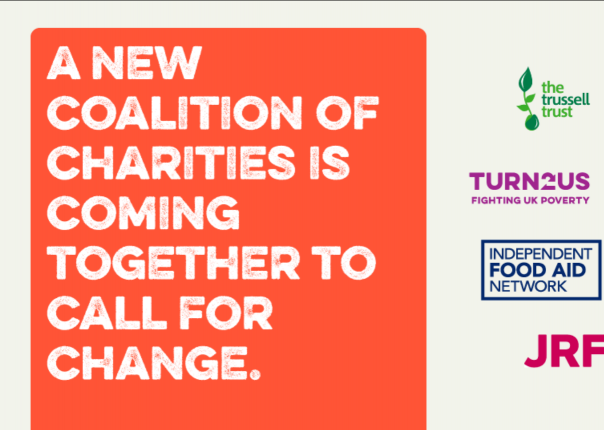
Chief executive of the Trussell Trust Emma Revie said the data showed people struggling with the amount of income they were receiving from working or benefits as the main reason for the increase in need.
The Independent Food Aid Network (IFAN) has also reported a record level of need with an average 59% increase from February to March 2020. That is 17 times higher than this time last year.
Food banks are working to continue providing emergency food safely to people who cannot afford to buy the essentials, despite this unparalleled surge in demand – but warn they cannot continue to pick up the pieces.
Now a coalition of the charities behind them, including the Trussell Trust, IFAN, Child Poverty Action Group (CPAG), Children’s Society, Joseph Rowntree Foundation (JRF), StepChange and Turn2us is now urging the government to strengthen the anchor it has already put in place to help protect many people from being swept into destitution as more than 1.8m people apply for Universal Credit in recent weeks.
Revie said: “The last few weeks have shown we must come together to protect each other against the unexpected. Like a tidal wave gathering pace, an economic crisis is sweeping towards us – but we don’t all have lifeboats.
“It’s not right that this has meant some of us don’t have enough money for essentials and are being pushed to food banks. Now is the time to build on the foundations our government has laid.
“We need emergency measures to ensure people can makes ends meet during this crisis. We have the power to come together as a country and make sure support is there to stop any of us being swept into poverty during this emergency.”
The coalition credits the government for a series of significant measures swiftly brought in, recognising the Coronavirus Jobs Retention scheme and additional investment in Universal Credit and the Local Housing Allowance, as huge boosts.
But it warns these changes are unlikely to offer a strong enough lifeline to people in light of the new economic crisis faced. With demand for emergency food parcels already soaring over the past five years and research showing that household’s referred to food banks are on average, left with just £50 per week after housing costs, the coalition is urging the government to build on its work so far and make the changes needed to ensure each and every one of us has enough money for essentials.
It wants the government to provide a Coronavirus Emergency Income Support Scheme that supports individuals and families who are already facing or at serious risk of financial hardship. It also calls on the government to work with charities in the anti-poverty sector to develop this scheme and ensure it can be put in place quickly, treats everyone with dignity, and leaves no-one behind.
The coalition proposes this temporary package to include measures such as:
* Increasing benefits that go to families to help with the costs of raising children
* Extending the suspension of benefit deductions to cover advance payments – these are often taken to cover the five-week wait for a first Universal Credit payment
* Lifting the benefit cap and two-child policy to ensure this support scheme benefits everyone
* Ensuring local authorities in England can provide effective crisis support to individuals and families